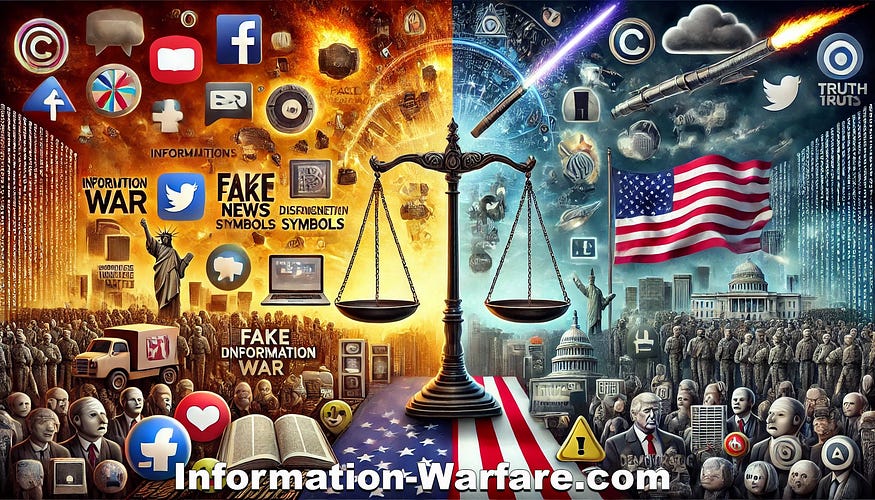Understanding Information Warfare
The Battle for Perception and Control

What is Information Warfare?
Information warfare, or information operations, involves the strategic use of information to influence, manipulate, disrupt, or control the perception, behavior, and decision-making processes of target audiences. It encompasses a wide range of activities, including propaganda, cyber warfare, misinformation, and psychological operations. The goal is to achieve strategic objectives by shaping the information environment.
Are We Experiencing an Information War?
Yes, we are currently experiencing an information war, and it has been ongoing for some time. The rise of digital technology and social media platforms has amplified the reach and impact of information operations. This conflict is not limited to traditional military powers but includes a variety of state and non-state actors, including nation-states, political parties, activist groups, and individuals.
Players in the Information War
Countries Involved:
Many countries are involved in information warfare, either as perpetrators or targets.
Key players include:
Russia: Known for its sophisticated disinformation campaigns and cyber attacks aimed at destabilizing other countries.
China: Engages in extensive cyber espionage and propaganda to promote its global interests.
United States: Both a target and a participant, utilizing information operations to counter adversaries and influence global perceptions.
Other Nations: Countries like Iran, North Korea, and various European states also engage in information warfare to varying degrees.
Goals of an Information War Against the U.S.
The primary goals of information warfare against the U.S. are to:
1. Undermine Trust: Destabilize trust in institutions, electoral processes, and the media.
2. Divide Society: Amplify social and political divisions to weaken national unity.
3. Disrupt Operations: Interfere with government and military operations.
4. Influence Policy: Sway public opinion and policy decisions to favor adversarial interests.
Political Parties and Information Warfare in the U.S.
Republican Party:
The Republican Party, particularly factions aligned with former President Donald Trump, has been associated with spreading misinformation and disinformation, especially concerning election integrity and COVID-19. Many within the party have used these tactics to mobilize support and sow doubt about democratic processes.
Democratic Party:
The Democratic Party has generally positioned itself as upholding democratic principles and countering misinformation. They have advocated for transparency, fact-based communication, and reinforcing trust in democratic institutions. However, they are also engaged in information operations to promote their agenda and counteract opposing narratives.
Which Side Upholds Democratic Principles?
Upholding Democratic Principles:
Democratic Party: Advocates for maintaining democratic norms, transparency, and the rule of law. They focus on combating misinformation and protecting the integrity of elections.
Republican Party: While historically committed to democratic principles, recent actions by some factions have raised concerns about undermining democratic processes and norms. Efforts to question election results and spread unverified claims have been seen as attempts to subvert constitutional principles.
Conclusion:
Understanding Your Position in the Information War
Americans are at the center of this information war, often without realizing it.
The side of the information war you are on can depend on the party you support:
Voting Republican: May align you with narratives that question democratic processes and promote skepticism towards mainstream media and institutions.
Voting Democrat: Generally aligns you with efforts to uphold democratic norms, combat misinformation, and reinforce institutional trust.
Recognizing the ongoing information war is crucial for making informed decisions and understanding the broader implications of the narratives and policies you support. Stay informed, seek credible sources, and critically evaluate the information you encounter to navigate this complex and evolving battlefield.

